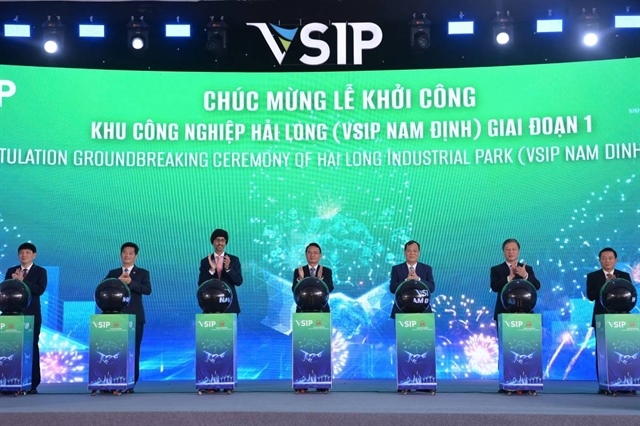Law offers real estate breakthrough
Law offers real estate breakthrough
The recent resurgence in the country’s residential real estate segment has partially been attributed to the changes in legislation that are set to take affect from July according to industry insiders.

Jonathan Tizzard, national head of valuation & research from Cushman & Wakefield Vietnam expressed his positivity about the changes. “This will mean foreign invested enterprises will be allowed to own land and develop property directly, along with foreigners being allowed to own apartments and houses,” said Tizzard.
Tizzard explained that a foreign developer will be able to buy land and develop their property without having to find and negotiate a deal with a local partner, which should speed up the time taken as well as reduce the development risk of the project.
In addition, there is suddenly a huge new market for products among foreigners and Vietnamese living abroad. “With yields from property in other countries much lower than in Vietnam, foreigners will be looking closely at real estate in Vietnam, both in Hanoi and Ho Chi Minh City as well as tourist areas such as Danang and Nha Trang and perhaps other areas as the country continues to develop,” he said.
Meanwhile, Nguyet Nguyen, senior associate from Mayer Brown JSM commented that the revised law on real estate business is being hailed as providing a breakthrough for the real estate market.
According to Nguyet, one of the outstanding aspects of the revised law was to open the door for foreign organisations and individuals to purchase houses.
The revised law also allows foreign organisations and individuals to purchase constructed facilities for use as offices, production facilities, and business or service functions.
In addition, foreign-invested enterprises are also allowed to lease houses and constructed facilities for sub-leasing.
Developers of residential projects, Nguyet added, will also benefit from banks acting as guarantors on as-yet constructed properties. “If the developer fails to hand over the houses as agreed, the purchaser may request the guarantor to return the advance and other payments they have made to the investors,” she said.
“This is the first time guarantees in the sale of property have been incorporated into law. The provision is intended to ensure that developers are financially viable and greater security is provided to buyers,” she added.
In addition, the revised Law on Real Estate Business stipulates that the legal capital for real estate business not to be less than VND20 billion ($952,000), compared to the legal capital of just VND6 billion ($285,000) under the current laws.
“However, as development of a real estate project in reality requires a large investment capital, this adjustment of the legal capital is reasonable, it is the first step to identifying and sorting out financially capable investors,” she said.
Nguyet also cited that another important highlight was the right to break up larger projects into more manageable pieces. “While investors under the current laws may only assign the whole of a residential project, an industrial zone infrastructure project or a new urban project, the revised law allows an investor of a real estate project (not limited to the three above types as in the current laws) to assign the whole or part of such project to another investor for the latter’s continued investment,” she added.
However, Tizzard said that there remain problems that need to be addressed in the revised law.
These include the time taken to move and compensate those displaced by development. “Currently, it is up to the developer to negotiate with affected parties and there are no formal laws governing the amount of compensation to be paid or the timescale to move, unlike in other countries such as the UK,” Tizzard said. This creates a huge amount of uncertainty and potential cost for developers.
In addition, many developers have previously bought land with the intention of developing the land once clearance and compensation has happened (and once the property market had recovered) but were unable to continue with their developments due to delays in resettlement.
The revised laws also means that land use right fees (LUR) are now based on a market price, which basically means that the fee payable to the government to obtain the LUR certificate is a lot more than it used to be.
“Many developers bought land in the past and had a significant amount of time (normally 5 years) in which to pay these LUR fees, which they believed would be very low. However, now these fees are much higher and will mean that many development sites are unfeasible. This could lead to a lot of developers either going bankrupt or deciding against developing the land, causing further problems,” he said.
























